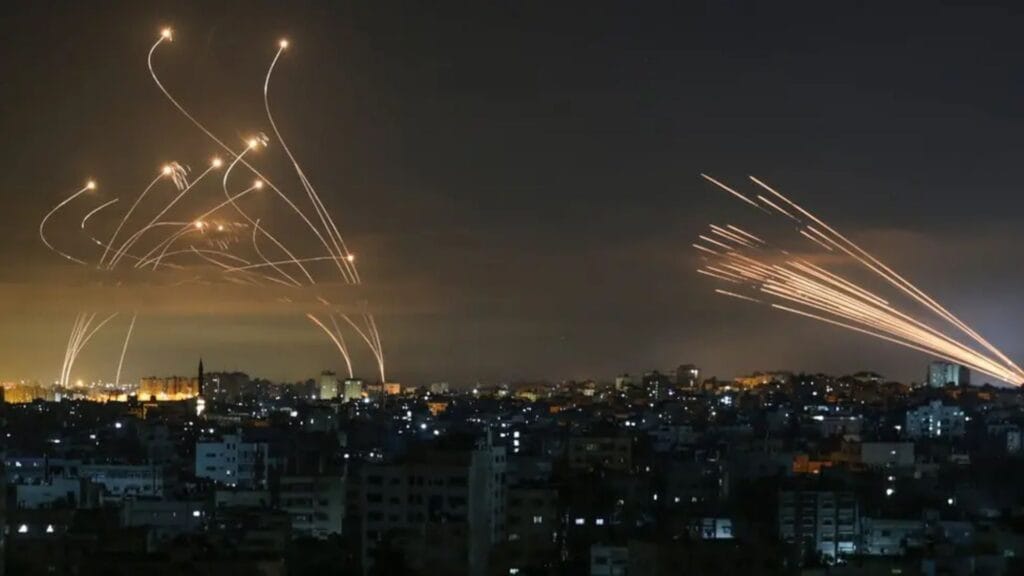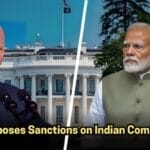Tensions between Israel and Iran are boiling at the moment. In the past month alone, Israel has pounded multiple Iranian targets. The lion’s share of these Iranian targets has been those participating in missile production and Iranian air defense systems. These assaults, aimed at de-stratifying Iran’s military infrastructure, have diluted the state of Tehran, most especially in the capability for retaliation and self-defense for future attacks. It is part of a wider war that has brought West Asia back onto the world stage as the most important region of concern.

Tel Aviv, in the past weeks, has stepped up its military preparedness, keeping the forces at a high state of alertness to respond if Iran decides to retaliate. An anonymous CNN source says Israel isn’t sure what shape, or even when, Iran might retaliate, but is ready for everything. Israel’s response to Iran’s October 1st attack seems part of a broader strategy making it harder for Tehran’s return retaliation.
A Vulnerable Tehran: How Israel’s Strikes Weakened Iran’s Defenses
This would have jammed the production facility of Iranian missiles, marking a significant blow to Tehran’s defense infrastructure. Similarly disturbing has been the response of Iran in terms of aggressive retaliation on Lebanese soil. This is because Tehran has scaled up its involvement with Hezbollah, increasing its offensive operations in Lebanon. Hezbollah was once a strong ally of Iran and acted as a force to be reckoned with in the region. This change of focus perhaps shows that Iran, as weak as it is, has no intentions of retreating.
The killing of two top officials in Hezbollah was the assassination of chief Hassan Nasrallah. This triggered a ripple effect from Iranian and Hezbollah military forces along Israel’s northern border; this reaction from Iran and Hezbollah signifies the volatile nature of Lebanon, having been a battleground in the past.
Lebanon’s Point of View: Seeking Peace at All Costs in Incessant Aggression
Lebanon Prime Minister Najib Mikati publicly condemned the continued Israeli attacks on Lebanese ground. He said that this has escalated and targeted civil zones; thus, many towns and villages have fled en masse. Mikati stated, “This does not give a sign of interest to reduce tensions.”.
This has made it an unfavorable position for Lebanon to put in an international request to the parties to call out for a ceasefire, on the diplomatic level. Its desperation in this situation lies in getting international support toward calling a truce since Lebanon is facing a desperate scenario in which stability has begun to wane in and out of crossfire from all directions. The desperation that his stance speaks with can convey that it will be less willing to continue supporting a proposed truce.
In my opinion, while Mikati’s work to bring peace is great, the reality seems that both Israel and Iran have become locked into a conflict and a ceasefire would merely prove to be a short-term solution. The entrenched enmities and strategic imperatives on both sides preclude long-term peace shortly, at least.
#WIONExclusive | Iran's retaliation will come before November 5 says former Islamic Revolutionary Guard Corps (IRGC) official @HosseinKanani to WION's @AnasMallick#USElectionOnWION #IsraelHamasWar #IsraelIran pic.twitter.com/IlKiZpoyh2
— WION (@WIONews) November 1, 2024Iranian Reaction: A Defiantly Cautious Position
Iran’s Supreme Leader, Ayatollah Khamenei, responded by social media to the latest wave of attacks with a relatively constrained reaction, asking the public to refrain from “exaggeration or minimization” in the face of the moves by Israel. A seemingly balanced response could thus appear unexpected to some, yet could be a strategic act of Iran’s leadership, one that would not wish to provoke a more expansive confrontation that would only be at the expense of their power. Khamenei’s words tell us that Iran wants to show its power but not to overextend its might in a long fight.
One ironic result of this is how Iran may have tactically deepened its military penetration into Lebanon instead of engaging head-to-head with Israel within her lands, not to expose too much of its military capital. Whether, then, this will be possible for the long term needs further observation.
The Possible Israeli Security Cabinet and Consideration of a Truce with Hezbollah
Even as the military situation is spiraling out of control, the Israeli security cabinet is taking time to deliberate on some sort of diplomatic resolution. Energy Minister Eli Cohen said the Israeli government is discussing terms of a possible ceasefire in southern Lebanon, but such a deal would likely require much time. Local media said Prime Minister Benjamin Netanyahu had been negotiating terms of a 60-day truce, a move which appears to reflect Israel’s eagerness to avoid a prolonged ground war on various fronts.
However, the ongoing discussions also reveal that even within Israel, there is recognition of the complexities involved in sustaining a prolonged confrontation with Hezbollah. A truce, even if temporary, could provide Israel with the opportunity to refocus its military efforts and give the population a respite from the hostilities. That said, a temporary truce may only be a short-term fix for a long-standing issue, and the hostilities could easily reignite once the truce expires.
This complicated situation reflects the fragile peace in West Asia and how fast it can be derailed. Israel’s recent actions seem to be about more than just deterrence; they signal an ongoing effort to limit Iran’s regional influence. On the other hand, Iran’s cautious, calculated response shows that it’s not backing down either. Both nations are prepared for a long war, but for the people who are suffering in the middle of Israel, Iran, and Lebanon, the vicious cycle brings only instability and suffering.
As much as leaders such as Lebanon’s Najib Mikati are urging diplomacy, real peace is difficult without a basic shift in goals and strategies for both sides: Israel and Iran. With so many on both sides who are truly committed to a de-escalation commitment, though an ideal desire by both parties, seems at this point unattainable. The issue here touches on far deeper political and religious as well as even ideological reasons and therefore unless a more long-term lasting result is reached, the common people of this region need to be prepared for life under constant strain and threat of war.
In my opinion, a temporary truce would give the region much-needed breathing space, but I don’t see it changing the course of the root causes of this conflict. The parties do not seem to trust each other with these complex alliances and rivalries involved. For that reason, the long-term hope for peace seems farfetched. Instead, at least for the time being, the pattern of strikes, counterattacks, and diplomatic maneuvers seems to be etched into West Asia’s turbulent landscape.
Analysis by Atul Raj






